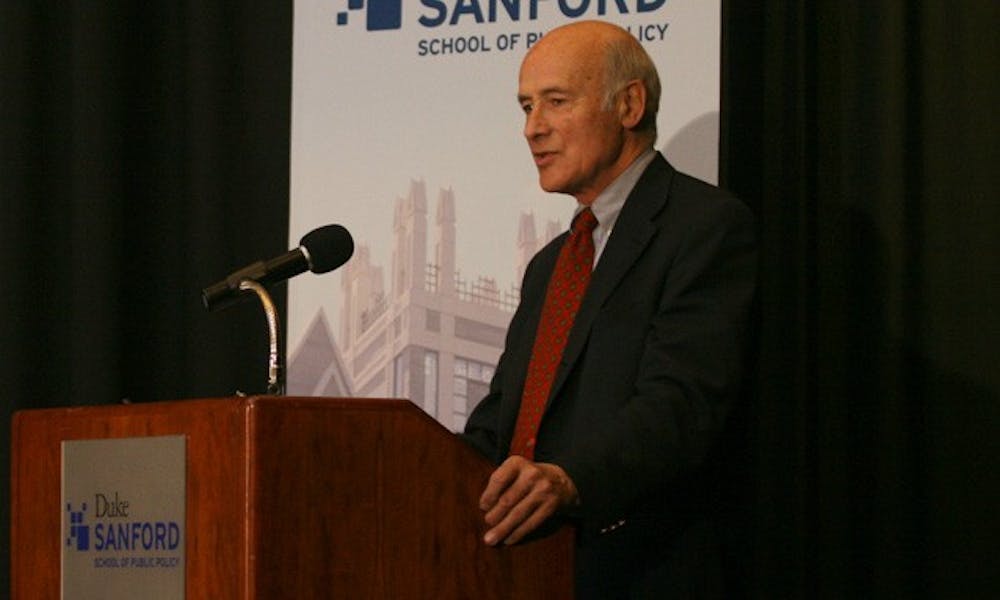Soft power may be Joseph Nye’s coinage, but smart power is America’s calling.
In a speech at the Sanford School of Public Policy Tuesday evening, Joseph Nye, former assistant secretary of defense for the Bill Clinton administration, spoke to dozens of students and faculty. Nye, who was also dean of Harvard University’s Kennedy School of Government, developed the theory of soft power in the 1980s. He is considered among the most influential international relations scholars alive today.
Soft power uses tools including culture, values and policy in diplomacy.
President Barack Obama’s administration has made soft power a large part of American foreign policy. Nye said America, going forward, must use “smart power,” combining diplomatic and policy measures with the use of force and coercion in its strategy abroad.
Nye said he believes that the Obama administration has not yet articulated a grand strategy for foreign policy, but has taken steps toward renewing the use of soft power. In Afghanistan, for example, Nye said America’s military leaders are focused on a different approach.
“We are less worried about how many of the Taliban we kill... and more so about how many of the civilians we attract and convert,” he said.
The U.S. still has far to go, however, because today’s public diplomacy budget is $2 billion, compared to a $700 billion budget for defense, he noted.
One of the major forces that will impact the expanding role of soft power in the future is the rise of an information age. When an audience member asked about the exit of Google from China, Nye said it was an intriguing situation.
“It was a case where foreign policy was made by a multinational corporation,” Nye said.
Nye added that today’s administration is taking the right steps to adapt, but noted in an interview after the event that the U.S. needs to improve its peer-to-peer communications.
Audience members asked several questions about the rise of China. Nye’s response was that China is certainly a growing force, but its soft power influence depends on whether it “loosens up” and becomes more open to outside media and information.
Russia was another country that Nye described as not using its soft power potential. In contrast, he said other rising powers like India have gained a large amount of soft power because they are more open. Nye cited Bollywood, the Indian Hollywood, as an example of a cultural institution greatly increasing India’s influence abroad.
One audience member asked Nye if he thought domestic policy will have an impact on policy abroad. Nye responded with the example of Tuesday’s health care bill. He said that regardless of opinions on the bill’s content, just the fact that a bill was passed through the gridlock of Congress has a large impact on views of America abroad.
The packed Fleishman Commons were a testament to Nye’s reputation. Freshman Ishita Chordia, a policy debater throughout high school, attended the Tuesday event.
“It was amazing to be able to see someone you read about in books actually voice his opinions in real life,” she said.
Freshman Alessandro Recchia also said he was impressed by the speech.
“What was most striking was the importance he placed on the role of diplomacy and tact as opposed to military force,” he said.
In closing, Nye suggested that America should perhaps look toward a new foreign policy narrative. The U.S. should not just focus on making a world safe for democracy, but “making the world safe for diversity.”
Get The Chronicle straight to your inbox
Signup for our weekly newsletter. Cancel at any time.

